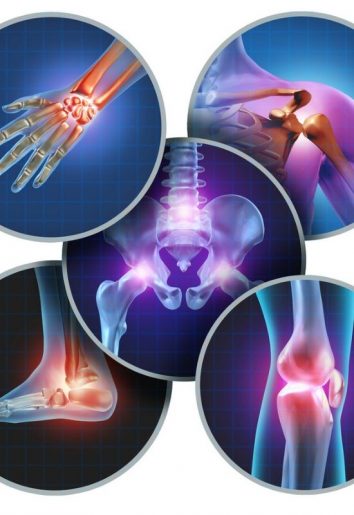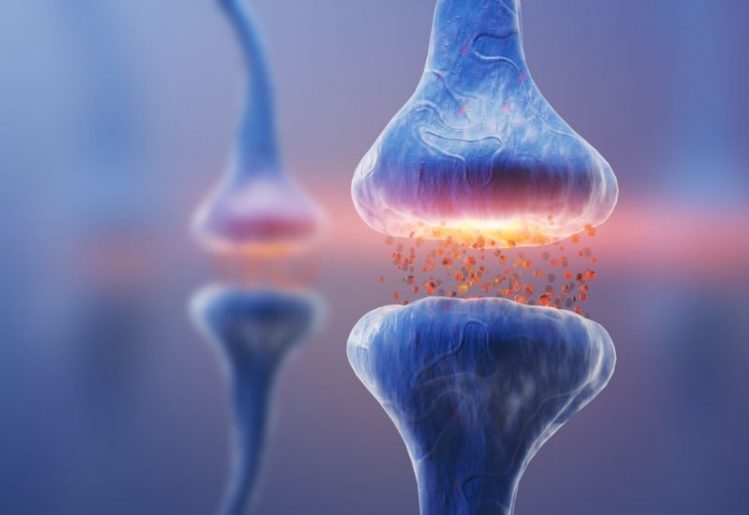Glucosamine is a natural supplement used to help support bone and cartilage health, and more specifically in cases of minor joint pain caused by osteoarthritis and other joint concerns. Early laboratory tests found that glucosamine helps reduce minor joint pain by addressing the inflammation that surrounds the joints, allowing the cartilage to naturally regenerate on its own. While intended to alleviate joint pain, the findings in a new study suggest glucosamine lowers cardiovascular risk as well.
What is Glucosamine and How Does it Help Joint Pain?

Glucosamine is a substance that’s found in the cartilage surrounding the joints in the hands and knees. It can be derived from natural sources, as it is found in the shells of shellfish, or it can be created synthetically in a laboratory. While there are two types of glucosamine, hydrochloride and sulfate, glucosamine sulfate is most commonly used in dietary supplements. Even though glucosamine can be found in shellfish, eating this type of seafood won’t give you the boost of glucosamine you may expect, as it is only present in their shells. In fact, the compound hasn’t been found in any edible foods, which means natural supplements are the best way to obtain the compound.
In studies on the effectiveness of glucosamine in treating joint pain, subjects were given an average of 500 milligrams up to three times daily. Results from these studies indicated that the supplement may cause indigestion when taken on an empty stomach. For this reason, it’s best to take glucosamine sulfate with your meals. In addition to an upset stomach, glucosamine may also cause heartburn, headaches, and drowsiness, however since glucosamine sulfate is a natural compound, it’s rare for the supplement to cause these side effects. Side effects most often occur when the individual takes more than the recommended dosage, or takes the normal dosage more frequently than necessary. Glucosamine should be avoided if you have a shellfish allergy.
While glucosamine sulfate has been found effective in helping to alleviate minor joint pain caused by osteoarthritis, it has failed to relieve pain caused by other conditions. Some patients found it ineffective in treating the symptoms of rheumatoid arthritis, IBD (inflammatory bowel disease), asthma, allergies and various sports injuries. Scientific research has not yet explored the potential for treating these other conditions, so it cannot be recommended for other types of treatments.
New Study Finds Glucosamine Lowers Cardiovascular Risk
According to a Tulane University study, adults who take a glucosamine supplement may be helping their cardiovascular health along the way. The researchers found that taking glucosamine helps lower the risks of developing various types of heart disease and may even help reduce the risks of a stroke.
The study, led by Professor Lu Qi, examined the health records of 466,039 subjects, which included information about vitamin and supplement intake, by accessing the records of the U.K. Biobank Study. The researchers noted that at the outset, no one in the study had cardiovascular disease. One-fifth of the participants reported taking a glucosamine supplement at the start of the study.
 The Tulane researchers examined the health records for their subjects at the beginning of the study and at a seven-year follow-up. The follow-up portion of the study also examined the death records for any subjects who had passed away within that time frame. In examining the records, they looked at any incidences of cardiovascular issues, which may have resulted in coronary heart disease or stroke. They also looked for any indications that death resulted from cardiovascular disease.
The Tulane researchers examined the health records for their subjects at the beginning of the study and at a seven-year follow-up. The follow-up portion of the study also examined the death records for any subjects who had passed away within that time frame. In examining the records, they looked at any incidences of cardiovascular issues, which may have resulted in coronary heart disease or stroke. They also looked for any indications that death resulted from cardiovascular disease.
In comparing the records, the researchers concluded that people who took glucosamine had a 15 percent lower risk of suffering from cardiovascular disease. Additionally, they found that their risk of developing a stroke, coronary heart disease or of dying from a cardiovascular-related event was reduced by up to 22 percent. The research team accounted for other factors that might have affected the results of their analysis. They said age, gender, body weight, diet, lifestyle and the use of other medications did not play a factor in determining the results. Although the study was only observational, the research team concluded that glucosamine appeared to lower cardiovascular risk. They added that future research is needed to verify their findings.
Professor Lu Qi did note that cigarette smoking seemed to play a role in the results. Smokers who were currently taking glucosamine supplements exhibited a 37 percent lower risk of developing heart disease. That risk was only reduced by 18 percent in former smokers and 12 percent in people who had never smoked. The purpose for this curiosity may lie in the effect that glucosamine has on inflammation. While cigarette smoking increases inflammation, the glucosamine supplement counteracts that effect. The supplement does this by inhibiting the production of C-reactive protein, which is linked to the higher inflammation present in smokers.
Glucosamine for Joint Pain and More
While regular use of glucosamine can help alleviate minor pain caused by osteoporosis and may reduce the risks of cardiovascular disease, Professor Lu Qi’s team advises caution. More direct research is needed to confirm these findings before the cardiovascular benefits of the supplement can be recommended. In the meantime, glucosamine can still be used to support joint and cartilage health, and to help soothe minor joint pain. Taking a high-quality supplement that contains glucosamine to help maintain healthy joints and cartilage can help improve the quality of life for people suffering from osteoarthritis or minor joint pain. For those individuals, improved cardiovascular health may be an unexpected and welcome benefit.
 Much previous research has suggested that resveratrol is beneficial to heart health. A new study led by Joseph Burgoyne, Ph.D. and conducted at King’s College London sought to identify its precise
Much previous research has suggested that resveratrol is beneficial to heart health. A new study led by Joseph Burgoyne, Ph.D. and conducted at King’s College London sought to identify its precise  The study, which was conducted at Virginia Tech Carilion Research Institute, sought to understand how
The study, which was conducted at Virginia Tech Carilion Research Institute, sought to understand how  We have known for several decades that schizophrenia is the result of a chemical imbalance in the brain. We also know that glutamate is involved in the development of schizophrenia and that the enzyme is present in glutathione. When studying the levels of these enzymes in the various parts of the brain, researchers have found that schizophrenia patients had lower glutathione levels in the anterior cingulate cortex and thalamus. There was an average of three percent less glutathione in the anterior cingulate cortex, while there was an eight-percent lower level of the enzyme in the thalamus of the brain.
We have known for several decades that schizophrenia is the result of a chemical imbalance in the brain. We also know that glutamate is involved in the development of schizophrenia and that the enzyme is present in glutathione. When studying the levels of these enzymes in the various parts of the brain, researchers have found that schizophrenia patients had lower glutathione levels in the anterior cingulate cortex and thalamus. There was an average of three percent less glutathione in the anterior cingulate cortex, while there was an eight-percent lower level of the enzyme in the thalamus of the brain. A University of East Anglia research team has announced that they’re ready to begin human trials on a possible new
A University of East Anglia research team has announced that they’re ready to begin human trials on a possible new  According to recent study published by the American Heart Association, almost half of all adult Americans live with some type of heart disease. The condition can lead to any number of serious medical conditions, including:
According to recent study published by the American Heart Association, almost half of all adult Americans live with some type of heart disease. The condition can lead to any number of serious medical conditions, including: You can control your risks of developing cardiovascular disease by
You can control your risks of developing cardiovascular disease by  Like many B vitamins, vitamin B6 is best known for its
Like many B vitamins, vitamin B6 is best known for its  Because vitamin B6 is important to the manufacture of serotonin, it is best taken when we first awake in the morning. We sleep more soundly and dream best when our serotonin levels are low. On the other hand, we benefit from a boost of serotonin during the day. Taking B6 as well as other energy-promoting vitamins in the morning just may give you the extra energy and mood boost that you need to get the day to a pleasant and productive start.
Because vitamin B6 is important to the manufacture of serotonin, it is best taken when we first awake in the morning. We sleep more soundly and dream best when our serotonin levels are low. On the other hand, we benefit from a boost of serotonin during the day. Taking B6 as well as other energy-promoting vitamins in the morning just may give you the extra energy and mood boost that you need to get the day to a pleasant and productive start. Unfortunately, most of the bacteria we ingest is harmful to us. Additionally, poor diets, which rely on foods high in sugar and trans-fats, encourage the growth of harmful bacteria into the digestive system. This is why it’s important to be more conscious of what you eat, and to try to eat
Unfortunately, most of the bacteria we ingest is harmful to us. Additionally, poor diets, which rely on foods high in sugar and trans-fats, encourage the growth of harmful bacteria into the digestive system. This is why it’s important to be more conscious of what you eat, and to try to eat  Often, people turn to artificial sweeteners, including Aspartame, as a means of controlling their blood sugar levels. However, recent studies have found that artificial sweeteners may be just as bad for you in this regard as regular sugar. While they may help limit weight gain, artificial sweeteners still cause a spike in blood glucose levels and also inhibits insulin production.
Often, people turn to artificial sweeteners, including Aspartame, as a means of controlling their blood sugar levels. However, recent studies have found that artificial sweeteners may be just as bad for you in this regard as regular sugar. While they may help limit weight gain, artificial sweeteners still cause a spike in blood glucose levels and also inhibits insulin production.